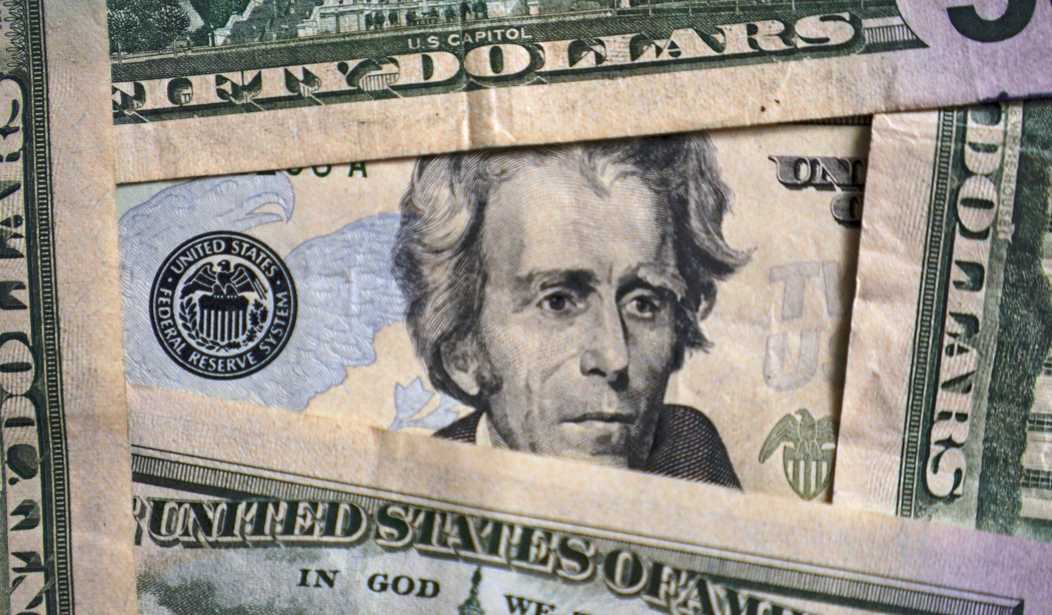Debanking - shutting off a person or group's access to banking and other financial services.
It's enough to strangle a person or group.
It's the sort of thing that seems profoundly un-American, barring some sort of serious criminal conviction.
Seriously - un-American enough that a Brit called it out:
I saw this quote the other day, by one of my favorite personalities of 20th century, Prime Minister Margaret Thatcher, and it reminded me of Trump's executive order on preventing debanking, I think you may like it too @SmashJT
— Monsieur Le Trianon ☃️🌺🎄🌻 (@ThePetitTrianon) August 10, 2025
Credit goes to @Thatcheritage pic.twitter.com/X8LngIScaJ
Last spring, we wrote about legislation that was wending its merry way through Congress to regulate the practice of "debanking" people with dissenting interests; last spring it was gun manufacturers and advocates, but other conservatives, including the President, have run afoul of the practice.
President Trump has decided to slam down the throttle on the process:
U.S. President Donald Trump stepped up pressure on large banks and their regulators on Thursday, signing an executive order requiring the banking industry to ensure it is not refusing financial services to anyone based on political or religious beliefs, a practice frequently described as "debanking."The order directed regulators to review all banks they supervise for any current or past practices that would effectively bar customers based on political or religious beliefs, and levy fines or other disciplinary measures as needed.
And he means business:
DISMANTLING DEBANKING: President Trump signs an Executive Order aiming to hold bank companies accountable for alleged discrimination against conservatives.
— FRONTLINES (@FrontlinesTPUSA) August 7, 2025
After many Americans - including President Trump and First Lady Melania - claim their bank accounts were terminated due to… pic.twitter.com/9hdGZr65Ho
There are business quesitons - or, to be accurate, regulatory quesitons. The process of "debanking" people and groups who launder money and engage in other crimes is nothing new, but already has a web of rules and language that Trump, in his characteristic style, has more or less walked over:
"There are words in the executive order which can be open to interpretation," said Matt Bisanz, a partner at Mayer Brown. "We will have to see what meaning the regulators attach to it, and what is the scope of the activities that they focus on.""It's not even clear if there will be regulations or just guidance, which will be enforced through the bank exam process or will be handled in a quiet, non-public manner," Bisanz added.Trump's criticism echoed longstanding debanking complaints from Republicans, who have accused Wall Street banks of "woke capitalism," in denying services to gunmakers, fossil-fuel companies and others perceived to be aligned with the political right.
And there are legal hurdles. Believe it or not - it's hard to unravel financial discrmination, due to some historic court decisions:
The CFPB appealed the judgment against it to the Fifth Circuit. However, shortly after the leadership of the CFPB changed under the Trump administration, the CFPB dropped the appeal. While this judgment doesn’t apply to the FTC or the federal banking agencies, the logic of the opinion applies to Section 5 of the FTC Act which is the other statute that Trump relies upon in his EO.
Trump’s EO is on even shakier ground today because, after the District Court issued its opinion in September 2023, the Supreme Court overruled the Chevron case and, as a result, courts should give no deference to Trump’s interpretation (or any agency’s interpretation acting at the direction of Trump) of the CFPB’s UDAAP authority and Section 5 of the FTC Act as authorizing the EO.
The only way that the Trump Administration can lift the cloud of uncertainty hanging over the legality of the EO is for Congress to enact legislation essentially codifying the EO. Bills are already pending which would accomplish exactly that result. However, it is uncertain whether the Senate will be able to muster 60 votes in favor of passage of either bill.
Which brings us back to Congress - Senator Scott's legislation last May, and other efforts:
Today, I’ve introduced legislation codifying President Trump’s Executive Order protecting Americans from politicized debanking. No American, no Christian organization, no business should be debanked because of their politics. pic.twitter.com/n4JKWGXPfL
— Congressman Andy Barr (@RepAndyBarr) August 8, 2025
It'll be interesting to see if the Democrats try to muster up 40 votes to defend financial censorship.








